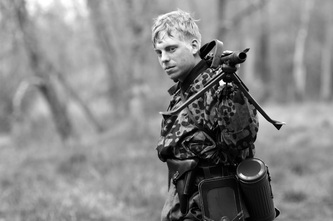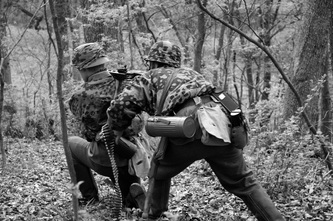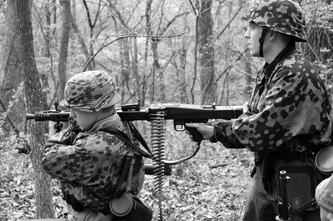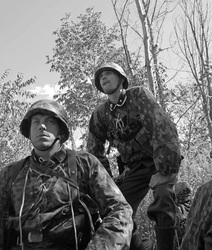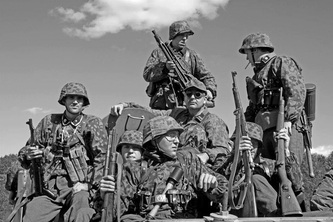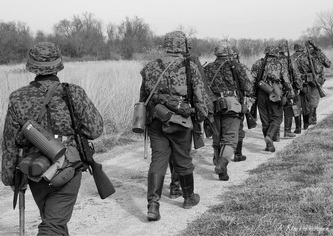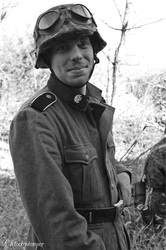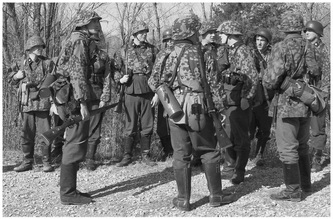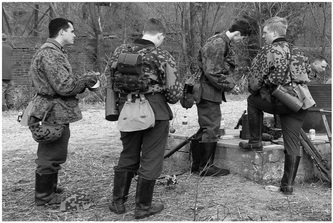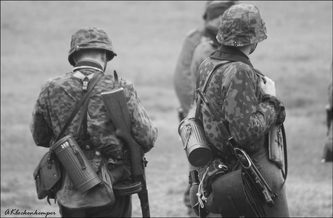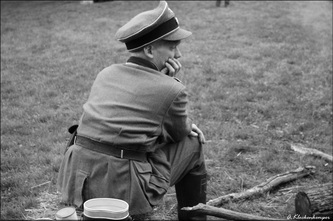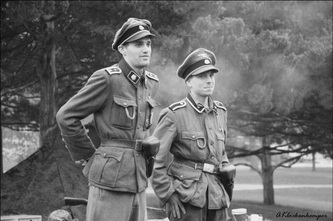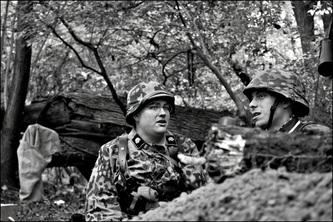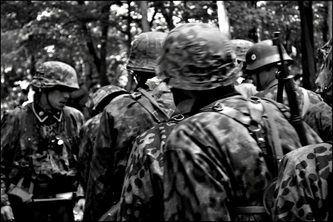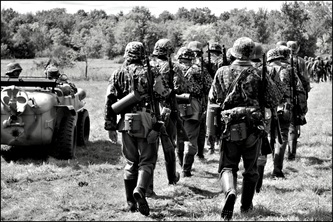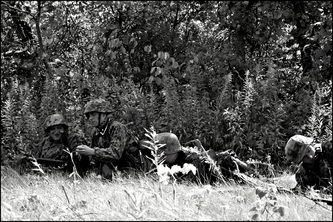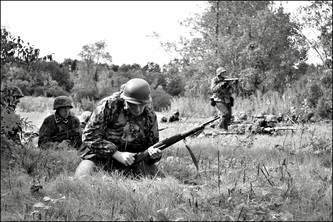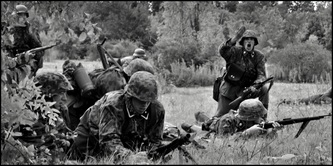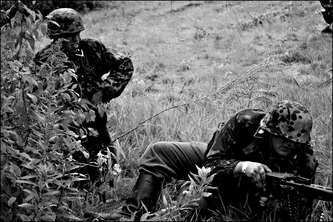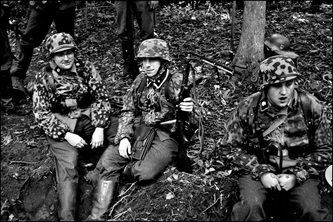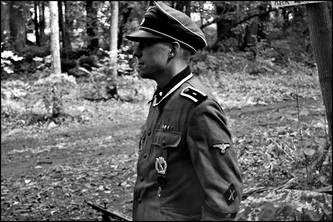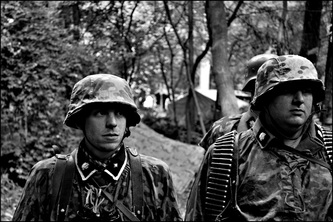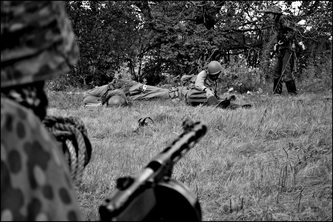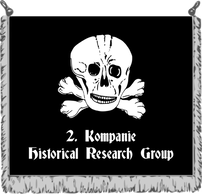SS-UNTERSCHARFUHRER ALFONS MAHLANDT
Awards: |
War Merit Cross 2nd Class: 29. Mai. 1939
Infantry Assault Badge in Silver: 18. Aug. 1940 Wound Badge in Black: 6. Juli. 1941 |
Promotions: |
SS-Mann: 12. Dez. 1937
SS-Sturmmann: 9. Aug. 1938 SS-Rottenfuhrer: 22. Juli. 1940 SS-Unterscharfuhrer: 30. Aug. 1941 |
Alfons Mahlandt was born in Dresden, to a father who was a printer. Although not coming from a military family, Alfons had a strong desire to serve in the military. His family was very well off, and Alfons was eager to get out of his home and the SS was the outlet for his angst.
He joined the SS in 1937, and was assigned to the SS-Totenkopfverbande. He was stationed in Dachau with the SS-Totenkopfstandarten 1. 'Oberbayern'. He enjoyed serving in the camp system, and was never known to complain, or to be overly brutal. In 1939, he was awarded the War Merit Cross 2nd Class.
He participated in the invasion of Poland, by this time he was an SS-Sturmmann. Having survived the campaign in Poland, he was among the cadre used to form the new SS-Division "Totenkopf". He received machine-gun training and was issued a ZB-26 and became a squad light machine gunner.
During the invasion of France he operated his machine gun, and was involved in every major action the SS-Totenkopf-Infanterie-Regiment 1 saw during the campaign. Following the campaign, he was promoted to SS-Rottenfuhrer and awarded the Infanterie assault badge.
Prior to Operation Barbarossa he gave up his machine gun to become a Truppenfuhrer. Although he tended not to be vocal enough, or stern enough with his men, he proved to be a reliable Truppenfuhrer. While leading his Truppe during an assault on the Stalin Line Mahlandt was wounded by shrapnel from a satchel charged thrown by a "Totenkopf" man to destroy a bunker.
He was sent back to the field hospital and awarded the Wound Badge in Black. A month later he would be promoted to the rank of SS-Unterscharfuhrer, and returned to his unit to serve as a Gruppenfuhrer, replacing one of many fallen NCO's after the assaults on the Stalin Line.
By fall of 1941, SS-Unterscharfuhrer Mahlandt leads his squad towards a small town called Demjansk, and although he was not fully confident as a squad leader yet, he and his squad relied on his combat experience in Poland and France to get them through the days to come. So far the men of "Totenkopf" had seen only victory, and none could have any idea how hard the upcoming months in the Demjansk Pocket would be.
He joined the SS in 1937, and was assigned to the SS-Totenkopfverbande. He was stationed in Dachau with the SS-Totenkopfstandarten 1. 'Oberbayern'. He enjoyed serving in the camp system, and was never known to complain, or to be overly brutal. In 1939, he was awarded the War Merit Cross 2nd Class.
He participated in the invasion of Poland, by this time he was an SS-Sturmmann. Having survived the campaign in Poland, he was among the cadre used to form the new SS-Division "Totenkopf". He received machine-gun training and was issued a ZB-26 and became a squad light machine gunner.
During the invasion of France he operated his machine gun, and was involved in every major action the SS-Totenkopf-Infanterie-Regiment 1 saw during the campaign. Following the campaign, he was promoted to SS-Rottenfuhrer and awarded the Infanterie assault badge.
Prior to Operation Barbarossa he gave up his machine gun to become a Truppenfuhrer. Although he tended not to be vocal enough, or stern enough with his men, he proved to be a reliable Truppenfuhrer. While leading his Truppe during an assault on the Stalin Line Mahlandt was wounded by shrapnel from a satchel charged thrown by a "Totenkopf" man to destroy a bunker.
He was sent back to the field hospital and awarded the Wound Badge in Black. A month later he would be promoted to the rank of SS-Unterscharfuhrer, and returned to his unit to serve as a Gruppenfuhrer, replacing one of many fallen NCO's after the assaults on the Stalin Line.
By fall of 1941, SS-Unterscharfuhrer Mahlandt leads his squad towards a small town called Demjansk, and although he was not fully confident as a squad leader yet, he and his squad relied on his combat experience in Poland and France to get them through the days to come. So far the men of "Totenkopf" had seen only victory, and none could have any idea how hard the upcoming months in the Demjansk Pocket would be.
DISCLAIMER: 2. Kompanie is a non-political organization We do not support naziism, or fascism. We are not associated with nor do we condone the actions of the Third Reich or the actual 3.SS Division.
